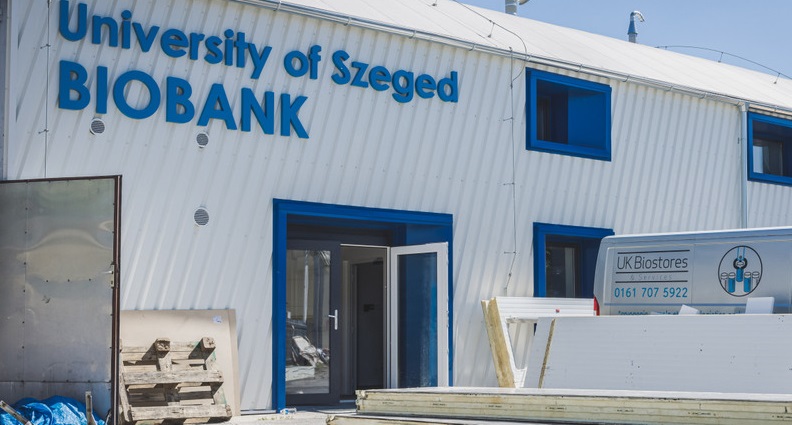
The University of Szeged Biobank has reached another major milestone in its development. The assembly process has begun for a state-of-the-art robotic biobanking storage system that will securely store millions of biological samples. In addition to this cutting-edge infrastructure, the university has expanded the Biobank’s capacity by introducing BSL-2 laboratories, marking a significant technological advancement. These facilities will play a crucial role in supporting biomedical research and diagnostics related to COVID-19 prevention and response.
With support from an international engineering team, the University of Szeged has begun assembling an advanced, multi-ton LiCONiC robotic biobanking storage system. Valued at nearly HUF 3 billion, this highly sophisticated system will store and swiftly identify millions of biological samples, playing a crucial role in the development of personalized diagnostics and therapies.
Describing the project as a game-changer for clinical studies (particularly in oncology and neuroscience) and genetic research utilizing human biological samples, Dr. Judit Fendler, Chancellor of the University of Szeged, emphasized that this development will have a significant impact. She noted that this advancement will further elevate the university’s prominence within both the national and international scientific community.
In response to the challenges of the COVID-19 pandemic, the University of Szeged restructured its ongoing construction efforts and introduced a globally unique upgrade to its Biobank. Dr. Zoltán Veréb, Head of the Regenerative Medicine and Cellular Pharmacology Research Laboratory at the Department of Dermatology and Allergology of the Szent-Györgyi Albert Clinical Center of the University of Szeged, and Head of Professional Affairs overseeing the Biobank development project, stated that the facility has been equipped with two BSL-2 laboratories suitable for safely storing biobank samples from COVID-19 patients.
Going forward, these laboratories will significantly improve the processing and biobank storage of samples from patients with various virological diseases, aiding in the swift identification of infections. This biobank development, unique in the region, will also bolster and support the university’s diagnostic capabilities. In addition, the retrievable and valuable sample collection provides substantial support for biomedical research and serves as a foundation for biomarker and pharmaceutical studies.
The Biobank has also been upgraded with specialized freezers capable of maintaining temperatures as low as minus 80 degrees Celsius, significantly expanding its storage capacity. By supporting the storage of critical samples, these freezers play a key role in the university’s epidemiological defense efforts, as the University of Szeged participates in various research collaborations requiring biobank samples from individuals who have recovered from COVID-19.
On top of improving the technical, mechanical, and security systems in the 260-square-meter biobank facility at the University of Szeged’s Szent-Györgyi Albert Medical Center, efforts to upgrade its IT infrastructure have now begun.
Original Hungarian text by SZTEinfo
Photo by István Sahin-Tóth

